Conference
Presentation of the book "Collection of maps, vedute and documents – Serbia, Montenegro and Dalmatia over the centuries"
14. May 2022.
The presentation of the book "Collection of maps, vedute and documents – Serbia, Montenegro and Dalmatia over the centuries" of the Public Policy Institute, was the occasion for the session "Cartography and Cartophilia in Serbia 2022." held on May 14, 2022 in the University Library "Svetozar Markovic".
Session "Cartography and Cartophilia in Serbia 2022." it was the first event of its kind in our country. In the University Library, scientists, collectors and representatives of institutions gathered in one place to discuss the development of cartography, from its inception until today, within three sessions. Special attention is paid to the importance of cartophilia and its role in terms of historical documents.
On this occasion, BALKAN PERSPECTIVES TODAY was engaged for the purpose of creating a
visual identity and concept of the whole set.
On May 14, 2022, Public Policy Institute presented in the University Library "Svetozar Markovic" book Zbirka mapa, veduta i dokumenata – Srbija, Crna Gora i Dalmacija kroz vekove (Collection of maps, vedute and documents – Serbia, Montenegro and Dalmatia over the centuries).
As part of the presentation of the book, the Public Policy Institute and the University Library Svetozar Markovic prepared a gathering "Cartography and Cartophilia in Serbia 2022" for all visitors.
The gathering consisted of 3 sessions in which scientists, collectors and representatives of institutions had the opportunity to point out the importance of cartography and cartophilia.
The opening was preceded by a one-day exhibition of maps and charts from the University Library "Svetozar Markovic" and the Public Policy Institute, where visitors for the first time had the opportunity to see some of the rarest and most valuable maps, charts and views from this area.
The wish of the organizers was to present the book exactly as it is, more precisely that it is not a mere enumeration of data and a dry arrangement of images from page to page, but it was conceived as an introduction to cartography and collecting.
On the other hand, the organizers of the gathering wanted to gather, in one place, people who are interested in cartography and cartophilia, so that they would continue to exist in the age of digitalization and advanced technologies.
If we take into account that the interest in this gathering and exhibition exceeded all expectations, we believe that the desire and goal of the organizers has been fulfilled, and that there is hope for the return of cartography and cartophilia to Serbia.
Belgrade ,
May 14, 2022.
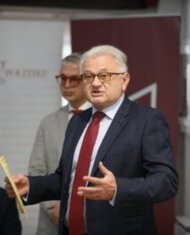

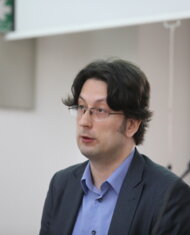
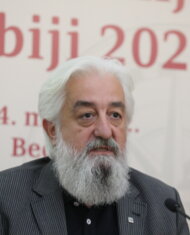
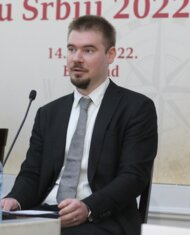
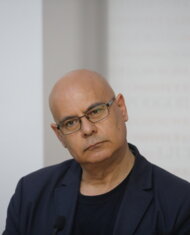
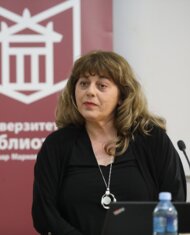
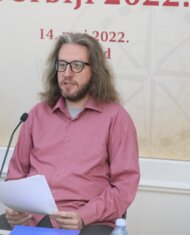

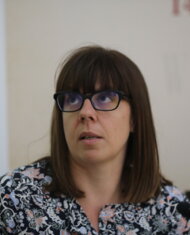
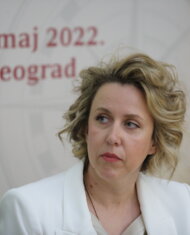


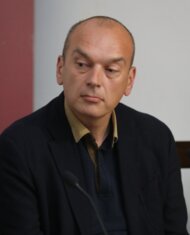
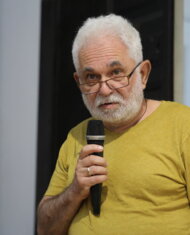
10:00-10:15
Welcome speech
10:15-11:30
Presentation of the book Zbirka mapa, veduta i dokumenata – Srbija, Crna Gora i Dalmacija kroz vekove (Collection of maps, vedute and documents – Serbia, Montenegro and Dalmatia over the centuries)
11:45-12:45
Cartography and its development
13:45-15:15
Cartophilia - institutional and private collections
15:15-15:30
Closing remarks and closing the meeting
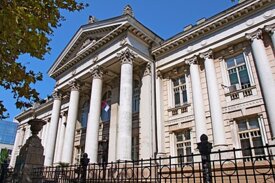
.jpg)
Belgrade is the capital and largest city of Serbia. It is located at the confluence of the rivers Sava and Danube, where the Pannonian Plain meets the Balkan Peninsula. The urban area of Belgrade has a population of 1.23 million, while nearly 1.7 million people live within the administrative limits of the City of Belgrade. Its name means “white city.” One of the most important prehistoric cultures of Europe, the Vinča culture, evolved within the Belgrade area in the 6th millennium BC. Throughout history, Belgrade was conquered several times. Due to its perilous strategic position, the city has taken part in over 115 wars and been destroyed 44 times. It has been the capital of Serbia since 1405 and it was the capital of Yugoslavia from its creation in 1918 to its dissolution.
.jpg)
Public Policy Institute
.jpg)
Public Policy Institute is committed to the development of peaceful, functional, democratic, and economically viable future of states and societies of the Western Balkans.
Fundamental presumptions for achieving such future we see in acceptance, modern interpretation and thoughtful implementation of classic and modern European political, economic, cultural, and social values, principles, and community organization.
Necessity of constant change and development of societies is inevitable. The Institute encourages the development of capacities of Western Balkans’ societies to understand the past, overcome challenges of the present and face a more stable future with the best possible level of readiness and certainty. Within this frame we have concentrated efforts and activities towards integrating and affirming the productive link between the potential of academic communities, politics, civil society, media, and the public.
The Institute represents a platform for action of different public, political and economic actors and groups. We cooperate with politically neutral experts from all over the Western Balkans, with several decades of experience in the area of media professionalization, political theory and practice, European and Trans-Atlantic integrations, security, human and minority rights, state administration, diplomacy, civil sector, science and culture.
We recognize education, in both classic and more flexible and modern sense, as the best mechanism for the progress of societies in which the Institute operates. Through the education of individuals and strengthening capacities of the public we wish to constantly inspire changes that will enable regional counties to become leaders in creating good public policies.
The Public Policy Institute operates through its offices in Podgorica, Belgrade and Ljubljana.